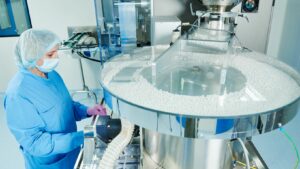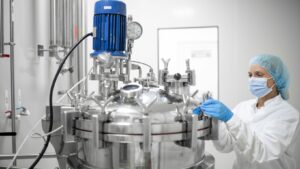In the world of healthcare, pharmaceutical technology plays a pivotal role. It’s the engine that drives innovation, pushing boundaries and transforming the way we fight diseases. From the development of life-saving drugs to the creation of advanced delivery systems, pharmaceutical technology is a game-changer.
Pharmaceutical Technology

Pharmaceutical technology, fundamentally, involves the application of scientific knowledge to create new drugs and enhance the delivery methods of existing ones. It aims to streamline drug development, optimize manufacturing processes, and ensure therapeutics reach patients in a safe and efficacious manner. Pioneers in pharmaceutical technology focus on drug formulation and delivery, helping to take molecules with therapeutic potential and transform them into viable treatments. They embrace advanced systems, like nanotechnology and 3D printing, to create more effective drugs and methods of transportation.
Notwithstanding, pharmaceutical technology isn’t limited to the development and delivery. Its role stretches to quality control in drug production, ensuring consistency, safety, and efficacy. It’s instrumental in the design and fabrication of high-tech equipment essential for drug production and quality testing.
Ignoring pharmaceutical technology’s significance would be shortsighted. Understanding its nature, role, and scope can provide a deeper insight into why and how it’s revolutionizing the healthcare sector.
Recent Advances in Pharmaceutical Technology
Continuing on the theme of pharmaceutical technology’s influence on healthcare, noteworthy advances deserve attention. A shift towards personalized medicine, leveraging genomic data, leads the charge. Progress in this realm enables customization of drug formulation, targeting individual genetic makeups. Such bespoke treatments improve efficacy while reducing side effects, pointing to a promising future.

Nanotechnology, another cutting-edge field within pharmaceutical technology, continues to provide revolutionary insights. It optimizes drug delivery, ensuring the directed and controlled release of medicines within the human body. Increase in biopharmaceuticals, or medicinal products derived from biological sources, further enhances the capacity of disease treatment.
Finally, digitalization permeates the pharmaceutical sector, enhancing efficiency and productivity. Developments like Real World Evidence (RWE) solutions and Artificial Intelligence (AI) platforms, contribute to data-driven decision-making and predictive analysis. This digital shift aims to optimize both drug discovery and patient care. These advances, integral to modern pharmaceutical technology, highlight the uncharted territories the field continues to explore.
Impact of Pharmaceutical Technology on Healthcare
Impact of Pharmaceutical Technology on Healthcare
Pharmaceutical technology drastically transforms healthcare, making inroads in optimizing patient care. Advancements, like personal genomic profiling, exemplify the technology’s promise in precision medicine. No longer does one-size-fits-all apply in treatment strategies. Instead, individual genetic information informs drug prescription, tailoring treatment to patient peculiarities.
Furthermore, nanotechnology revolutionizes drug delivery. Previously, systemic administration of drugs might result in adverse effects. With nanotechnology, pharmacologists target affected areas precisely, reducing unintended consequences.

The rise in biopharmaceuticals demonstrates the technology’s impact on developing novel therapeutic substances. It’s a beacon of hope for patients with previously untreatable conditions. Alongside this, pharmacy’s digital landscape matures with the implementation of Real World Evidence (RWE) solutions and Artificial Intelligence (AI) platforms. Both equip researchers with invaluable insights, accelerating drug discovery and improving patient care. Pharmaceutical technology, thus, continues to chart new paths, broadening horizons in the healthcare sector.
Challenges and Future Prospects
Pharmaceutical technology’s transformative power in healthcare is undeniable. It’s been a driving force behind life-saving drugs, advanced delivery systems, and personalized treatments. Yet it’s not without its challenges. The sector faces the task of integrating emerging technologies like AI and nanotechnology into existing frameworks while maintaining stringent safety and efficacy standards. The future of pharmaceutical technology is bright, with the promise of even more groundbreaking discoveries. As the field continues to evolve, it’ll be crucial to navigate these challenges effectively. The potential for improved patient outcomes, more efficient drug discovery, and treatments for previously untreatable conditions is immense. As we move forward, it’s clear that pharmaceutical technology will continue to reshape the landscape of healthcare, offering new hope and possibilities for patients worldwide.

